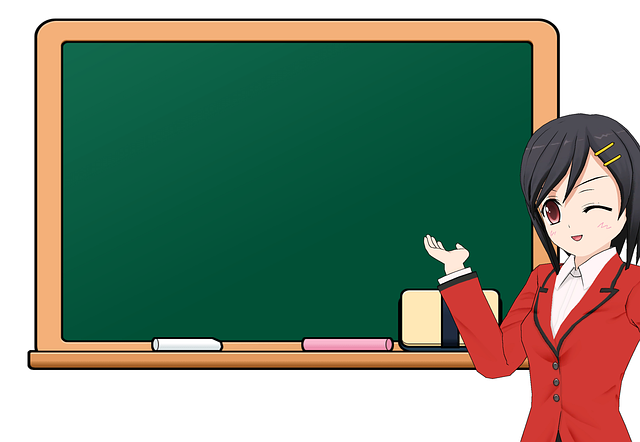Dealing with Dyslexia: The Ultimate Guide for the Parents
Not every single child will learn to read at the same pace. We sometimes think that our children might be feeling that a text or a passage is just too hard to read. If your child is having a real hard time to read out loud, there is a big chance that he or she might be a victim of dyslexia.
Dealing with dyslexia surely is a frustrating situation. Not just for your kid, for you also. But the case of dyslexia is not that rare. At the very beginning of learning to read, about 70-80% children displays some signs of various forms of dyslexia. With the passage of time, the symptoms start to fade away.
Still, about 5-10% kids cannot surpass the evil circle of this unhappy disorder. In some regions of the world, the number soars up to 17%!
The good news is overcoming dyslexia is possible. With great determination and a positive attitude, your kid can also be free from the vicious disorder called dyslexia.
Without wasting any more time, let us start with our ultimate guide to fight off dyslexia. Sit back, relax, and grab yourself a cup of coffee! This is going to be a long and detailed guide.
Let's begin, shall we?
Table of Contents
What is Dyslexia?
Is Dyslexia Too Common?
Signs and Symptoms of Dyslexia
Other Learning Disorders Similar to Dyslexia
Your Kid is Struggling: Social and Emotional Impacts
How Could You Diagnose Dyslexia?
When Should The Kid be Evaluated for Dyslexia?
Is it Necessary to Evaluate the Kids for Dyslexia?
How to Evaluate Kids with Dyslexia?
How Can The Teachers Help?
The Classroom Doesn't Have to Be a Prison Cell!
Be the Role Model Your Kid Needs
Higher Education: Is It a Dream or Reality?
Concluding Words
Dyslexia Definition: The Basics
Let's start with the dyslexia definition. Dyslexia is the neurological syndrome that causes a human being to face difficulties to decode words, spelling, and phonology. He or she finds it hard not just to pronounce the word but to read it all together.
The words might seem shuffling to them, and they find it almost impossible to find words in a text. In tougher cases, a kid with dyslexia will fail to read, write, or pronounce the word. Some parents think that a dyslexic child doesn't have the intellect to read it. That is a misconception as dyslexia has nothing to do with patient's intelligence, they are equally smart and capable of leading a healthy normal life. The problem is only related to reading and identifying words properly.

In the beginning, it might seem impossible to diagnose a child with dyslexia. Almost every kid struggles to read fluently. But as your kids will start growing and getting into the next grades, the problem will become prominent.
The International Dyslexia Institution (IDA) defines the syndrome to be a specific learning disability that is originated from a neurological imbalance that hampers fluent word or letter recognition, poor spelling, and decoding abilities.
A patient suffers from the adequate reading experience and lack-off the average vocabulary growth. Try this vocab test tool to understand your current skill level!
Thus he or she might gradually get lower marks in school and even fail in a subject or two. Remember, you cannot blame the child as it is none of his/her faults. You need to be supportive and always keep them motivated and inspired.
Various studies also reveal that dyslexia can be caused by DNA as it runs through families. So, we think we get the gist and now know what dyslexia is.
Is Dyslexia Too Common?
Yes, having dyslexia is not that much a rare case. In the USA, about one in every five children suffer from it. If we think about the percentage of the total population, about 15-20% of total population struggle with words at the early stages of life. Among all the learning disabilities, dyslexia is the case in about 70-80% scenarios.
The sad fact is most of the dyslexic students remain undiagnosed and often treated as â“ dumb! It is a shame for us to label them stupid while they are suffering miserably every single day of their lives.
Earlier, scientists and experts used to think that dyslexia is more common in boys. Although, recent studies prove that the neurological syndrome has nothing to do with the patient's gender and both the gender are equally affected.
Dyslexia Symptoms or Dyslexia Signs
Let's kill down the misconceptions. There are a tremendous amount of misconceptions built around dyslexia. So, now we will share the exact symptoms you should look for in your kid before labeling him or her with dyslexia.
Moreover, we will discuss some of the FAQs related to the topic.
Not every kind of reading difficulties have to be related to dyslexia. It is very common that kids who just started to learn reading and writing will face problems to read and identify words and letters. It doesn't make them dyslexic.
Moreover, you cannot ever say that dyslexic child is not good as its peer. In some cases, they even surpass the commoners with their other talents and skills. They only find reading and pronouncing tough, not painting, solving puzzles, or any other activities.
We have prepared the list of the signs and syndromes into three categories â“ oral, reading, and writing. Remember, an average child might show some of these symptoms. It doesn't mean that he or she is dyslexic. A dyslexic patient will show most or several numbers of these signs.
So, let's check out the signs to look for!
Oral Symptoms
- Delays to learn to talk
- Finds hard to pronounce words
- Gathering newer words and enriching vocabulary seems tough
- Finds it hard to follow and stick to instructions
- Bad with directions, confuses with left and right, north and south, etc
- Finds it hard to memorize nursery rhymes, songs, or letters
- Finds it hard to relate concepts and relationships
- Forgets names or pronounce names
Reading Symptoms
- Reading seems too hard for them
- Cannot identify or generate rhyming words and syllables
- Confuses with similar words and sounds, aka phonemic awareness
- Finds it hard to identify and remember the sounds of the letters in an alphabet
- Cannot remember or confuses with similar shapes of the letter, for example, confuses "b" with "d" and so on
- Transpose the sequence of the letters in words
- Struggles to pronounce longer words
- Feels shy to read out loud
- Bad at reading comprehensions
- Reads slowly and struggle badly
Written Language Symptoms
- Too much spelling mistakes
- Mistakes with same words every time
- Bad at revising and proofreading
- Disorganized writing
- Writes too slowly
Other Common Symptoms
- Difficulty to identify the names of the colors, alphabet, and objects
- Weaker memory
- Has to go through the same concept multiple times to grasp them
- Easily distracted and often procrastinates
- Gradual low performance
- Hates schools and school works
- Dyslexic relatives of parents
If your child has several of the above-mentioned symptoms, you should consult experts and check if he or she has dyslexia. Although, it is very common to have one or two signs in any average child.
Other Learning Disorders Similar to Dyslexia
There are a few disorders which are too similar to dyslexia. Often many parents think that their children have dyslexia while they are the victim of other but similar neurological syndromes.

It is very important that you know the differences among these learning disorders. Check out the syndromes below before giving your child the tag of dyslexic.
Dysgraphia - Difficulties to Write Properly
- Cannot be sure of the prominent hand to write
- Slower or poor handwriting
- Messy handwriting and disorganized papers
- Finds too hard to copy texts
- Weaker hand motor skill
- Cannot remember the ideal or usual pattern to write letters
Dyscalculia â“ Hardship with Numbers
- Finds it hard to count the numbers sequentially
- Often misreads numbers
- Finds it hard to memorize common mathematical laws and facts
- Too many mathematical errors
- Often confuses between addition, subtraction, multiplication, and division
Attention Deficit/Hyperactivity Disorder (ADHD) â“ Difficulties to Retain Attention
- Easily distracted
- Mood swings
- Inattentive
- Cannot concentrate on a topic for a long time
- Distracted and impulsive
- Shows hyperactive behaviors
Dyspraxia â“ Difficulties to Use Motor Skills Properly
- Weak coordination of physical movements
- Faces difficulties to use facial muscles to pronounce words
Bad at Organization
- Often loses objects, books, and papers
- Weaker sense of time
- Forgets to do chores or tasks
- Messy desk and room
- Can get overwhelmed by too many instructions
- A tendency to work slowly
Some might often get confused with such symptoms and believe that the child is suffering from dyslexia. While in fact, it might not be the case. Although, you should seek professional help whichever the case is.
Your Kid is Struggling: Social and Emotional Impacts
A dyslexic child has to go through a lot. Not only he or she is doing bad academically, but he or she might also be emotionally shattered. It's very common for them to feel inferior. Moreover, some students might be mocked by other students for their unusual behavior and constant bad academic results.
We even heard a lot of stories of bullying. Such negative impacts might do even more harm and damage to the dyslexic child.
We often find parents telling the social awkwardness their dyslexic children are facing. It's very natural for a kid to feel shallow about and being ashamed of their disability. Such a kid will also find it hard to interact with his or her peer.
Moreover, dyslexic children might even feel awkward to tell their parents about the problems they are facing each and every day. Can you imagine how hard it would be for just a kid to go through such difficult moments?
As his or her parent, you should always be by their side and try to make him or her normal about everything. You could also try to identify some of the other skills that he or she might be good at.
Encourage them to flourish in the sectors where they feel comfortable. Try to overshadow their disabilities with the positive attitudes and their stronger skills. For example, if your child is good at painting, encourage them to paint more, praise them. Or if he or she is good at sports, let him or her play more often. Such activities will help him or her to overcome the negativities.
How Could You Diagnose Dyslexia?
Diagnosing your kid for dyslexia is not a simple task. The basic reason is almost all the kids face difficulties to read at the beginning. So, there is no definite way to differentiate the average kids and dyslexic kids.
Although, some specific evaluations might be helpful to identify such disorder. Such evaluations consider the reading deficit, hearing deficit and other social and cognitive behaviors.
Although, you need to wait until your kid starts going to pre-school to be sure of these evaluations. If we are thinking about the age, the age of eight should be the ideal assessment time.
If you can see the probable symptoms in your kid, you could ask the school district to evaluate the previous results and the regular class performance. You will see a significant amount of distance between the ideal benchmark and the performance of your child.
Only after judging the intellectual capabilities, regular class performance, homework, and behavior you could come to a conclusion. Although, we suggest you not to take any rash decision and consult a doctor or an expert who has enough medical knowledge.

If by any chance you think that your kid has probable dyslexia, you should consult with the school district and come up with a unique academic plan for your child. You could even try enrolling your son or daughter to a special school where he or she might get better academic help and maintain a proper pace.
Consulting with psychiatrists, neuro-specialists or reading specialists is also a great step. Such actions would help you to pinpoint your child's condition and set up a proper plan for him or her.
Also, you should adhere to the suggestions of the experts rather making decisions on your own. They are way more qualified to resolve the issue.
You could even share the suggestions of the experts to the school district so that they could take special care of your kid.
When Should The Kid be Evaluated for Dyslexia?
It's quite common for a kid in first grade to stutter while reading or confuse similar words and letters. You shouldn't be too worried if your child is too young. But if the same problem persists for years and your child fails to learn reading even in third or fourth grade, you should be worried.
As we have said, the age of eight or the third grade is the ideal time for your child to be evaluated for dyslexia symptoms and dyslexia signs.
But you have to be very delicate with them as your kid might already feel shallow or meek as they are ashamed of themselves. He or she might even feel ashamed to be friends with the other kids.
Dr. Shaywitz, a dyslexia specialist, feels that there is a gap between the cognitive growth and the reading ability of the dyslexic children. The sooner the parents and the teachers act to mitigate this gap, the better it is for the child.
If the gap broadens too wide, it could more be complicated to help the child to overcome dyslexia. But in any situations, you cannot judge your child or pressurize them. That might cause opposite and negative reactions.
Is it Necessary to Do Dyslexia Tests?
The simple answer would be â“ yes, it is very important to evaluate your child if you think he or she might have dyslexia. The reason is quite obvious, the sooner you detect whether your kid does or doesn't have dyslexia, the better the chances are of treating them.
Generally, the teachers and the parents are the first people to identify that a kid has dyslexia. Further tests and diagnoses are done later on. Experts and researchers have narrowed down why it is so important to evaluate your kid at the early stages. The reasons are somewhat like these â“
Diagnose Early, Treat Early
It is much easier to pinpoint the problem if you can identify the problem much sooner. Not every case of dyslexia is the same. You can cancel out the unnecessary options and go for the much more specific causes that are troubling the child. Moreover, the doctor can analyze the patient better and give proper guidance that would truly help the child.
To Clear Away The Confusion
As we have mentioned earlier, there are more syndromes just like dyslexia but not. For example, it is quite common for parents to be confused between dysgraphia and dyslexia. So, you have to be sure of the exact problem your child is suffering from.
Also, the treatment givers and the parents should know the right way to treat the problematic child. Such kids cannot learn the way other normal children learn. The gradual performance drop might cause pressure on the child. Even the parent could act quite harsh without knowing the fact behind the result drop.
Proper Documentation
The treatment result and process should always be well-documented for further analysis. Such documentation paves the way for better treatment. If you don't evaluate the child at the early stage, things could be too late to recover. You don't want yourself to be in that situation.
Considering all the facts, you should act fast and act early. The sooner you evaluate your child, the better their recovery chances become.
How to Evaluate Kids with Dyslexia?
There are a number of things to be considered while you are planning to do an evaluation for dyslexia. For example, one must consider the child's family history, the IQ of the child, motor skill function, etc.

So, let's take a look at the factors you should always consider during the evaluation â“
The Background Check
In a lot of cases, we have seen the child to be dyslexic if he or she has a family history dyslexia as it is genetic. Even the cases of late or delayed speech should be considered. It makes the chances of a child to be dyslexic increase to a great extent. So, one should keep written record of the background of the patient; a form could be of great help in this case.
Moreover, the written documentation should also include the type of education the child received â“ regular or homeschooling. The academic result should be considered too as well as the homework. The exercise books could be a great source of information.
Oral Abilities Not Intelligence
The older methods of evaluation included intelligence tests. Many still think that the disability to properly read or spell could be the reason behind dyslexia. But recent studies rule out this possibility.
We should keep in mind that dyslexia is a type of reading and speaking disability not any sign of lower intellect. Actually, many dyslexic children are considered to be highly intelligent and creative. So, the intelligence level cannot determine the probability of having dyslexia.
Instead of doing the intelligence tests, as a parent, you should consider looking for the signs of oral disabilities. Try to notice if your child had problems speaking out particular words or frequently making the same spelling mistakes, or writing the letters in any weird way.
If the diagnosing child is slightly old, say is in third or fourth grade, you can check for the class performances and academic results.
Difficulty to Recognizing or Distinguishing Words
One of the most common ways to identify a dyslexic patient is to ask them to read out words. A dyslexic child finds it hard to distinguish between the similar looking words. For example, your kid might be finding it hard to differentiate between the words like "big" and "dig," or "pink" and "link" etc.
Two things should be taken into account â“ the accuracy and the time he or she needs to properly identify the words. We are not asking you to ask them to speak the tougher words, just tell them to pronounce simple words.
Decoding Words
Word decoding could be a great way to judge the oral skills of a child. During this test, you will ask the kid to speak out the unfamiliar words with the knowledge of the sound of the letters. If a kid has the slightest knowledge about the syllables and the basic sounds, he or she could pass this "word-attack" challenge. A dyslexic child would find it very hard to identify the proper sound of the words.
Using imaginary words instead of the real words will be a clever trick. For example, you should ask them to pronounce words like "brog" or "nuck." In this way, you could truly judge their ability to identify the true sound of the letters so that they cannot rely on simple memorizing.
Spelling Similar Words
One of the main complication a dyslexic child face is to spell the words properly. It becomes even harder for them if the letters in the word are too similar. Moreover, the child has to pair up the letters and sounds of them in a word. It seems too hard for them. So, such a spelling test will tell you if your kid is actually suffering from dyslexia or not.
In some senses, you could say that a spelling test is kind of the opposite of decoding words. In this case, you can test your child's memories â“ both long and short term.
A lot of experts believe that spelling the most severe form of a problem a dyslexic child faces. Not only it weakens a child's oral skills but also hurts the writing skills.
Phonology
Phonology simply means the process of creating a sound properly. It is vitally important to speak up the words fluently. Every language of the world is actually made of certain sounds â“ the correct pattern of sounds make up the languages.
So, what should you do? Simply ask your child to speak out some of the common words and check if he or she is having any difficulty to produce the accurate sounds. It could be a spelling quiz for grade 1 or a spelling quiz for grade 2. However, if your child older, say is in the eighth grade, you can try the same test with a spelling quiz for grade 8.
A normal kid can read or speak out the words fluently without putting much effort. It seems all natural and without too much conscious effort. A troubled child might even find it difficult to recall the actual sound of the words.
Reading Out Comprehensions
This evaluation test is quite easy. Just ask them to read out a passage from a storybook. While your child is reading out the passages, try to look for inconsistency in fluency. There is another thing you should look for if your child is skipping words or not.
You should choose a complicated comprehension with too much grammatical complexity. Rather a simple passage from a children book should be good to go with. Also, you should consult with the teachers of the child. They might give you valuable information regarding the difficulties in reading comprehensions.
A dyslexic child tends to do fine while they are listening to a passage from a book, the problem occurs when they are asked to read it out.
These are the common and the most simplistic forms of evaluations that can help you to identify if your child is facing problems with words. If he or she shows these potential symptoms, you should hurry up and consult with doctors or experts. With proper care, they can still lead a normal and happy life.
How Can The Teachers Help?
The teachers of your child can be your best friend to help your child overcome dyslexia. There is no better way to keep track of your child's progress other than consulting the teachers.
The teachers know the benchmark every student should pass and how much you could expect from a child of a certain age. They can help you with providing a regular update also help the student overcome the situation with the help of various academic techniques and methods.

But remember, the teachers are trained to solve the reading problems for regular kids. If they try too hard to implement the traditional methods, your kid might fell too much pressurized. The last thing you want to do is to pressure your kid. They might crumble down.
Moreover, the teacher could help your kid by providing books that would be suitable for your kid. Some teachers even have professional training to handle such delicate students as dyslexia is now a very common problem around the globe.
The Classroom Doesn't Have to Be a Prison Cell!
A child with dyslexia in many cases gets afraid of the classrooms. He or she might feel that others are constantly judging them or mocking him or her. The teachers and the peer should be helpful rather than reminding him or her of their disability.
A good way to get rid of this problem could be choosing a specialized school for dyslexic children. A troubled child could be benefitted highly as he or she would the proper care that normal schools will not give them. Still, if the teacher and the students can be friendly, the child will get the proper environment to grow without hesitation.
On the other hand, if a child with dyslexia is constantly being nagged about his or her poor performance, things could get much worse within a short period. A child's mind is very delicate, and such nasty behavior could lead to probable trauma and anguish.
Moreover, the peer could bully the child or make fun of him or her. The teachers and the school administration should make sure that other kids don't bully such a poor soul.
Now, we would like to share some of the good practices in the classroom that could help a child to overcome or minimize the effects of dyslexia.
Lighten Up the Classroom
- Prepare an outline for the lesson of each class â“ what is going to be taught and how this lesson adds up to the whole syllabus of the complete chapter. At the end of the class, the teacher should also summarize the lesson before the class. This very technique could help to convert the short-term memories into long-term memories.
- While giving the homework, make the students write it down in their personal notebook. Ask the students to maintain a different notebook for the homework so that it can be reviewed afterward.
- Ask the students to maintain a study circle, maybe ask them to write down the phone numbers of the fellow study circle. Thus they could maintain a connection with other kids and keep up the pace together like a pack.
- Try to give the lesson in a written manner. If you use verbal methods, it might seem effective for shorter terms, but students will soon forget the gist of the lessons. On the other hand, writing down the lessons in every class will help them maintain a sequence of the lessons and be helpful for the longer term.
- Encourage the pupil to make a daily routine and help to maintain it. Organizing behaviors help a person to build up an organized overall life and create a positive attitude towards the life.
- Before going deeper into the details of the study material, create an impelling introduction that would keep the student's attention for a longer time. After that, break the materials into shorter lists. In this way, a teacher can connect with the students in a better way.
- A teacher should not just write on the board and ask the class to copy it down on the notebooks. A dyslexic student might find it hard to copy texts from other sources. Instead, a teacher should prepare premade notes that he or she could hand down to the whole class before each and every lesson.
- Keep the class motivated and never bore the class with overcomplicated materials. A class should be cheerful as a more joyous scenario builds up the environment for study.
Don't Make the Blackboard Too Boring!
- Use multiple colors while writing on the board. The white chalk on the blackboard or the use of a black marker on the whiteboard makes the board look pale and boring. Moreover, the different colors help a student to distinguish between facts and help them to understand the lesson more efficiently.
- Use spaces! Some teachers tend to write a lot on the board without giving much space between sentences or words. It should be a playground of words (images) and void.
- Don't rush! Some students might take a bit more time to copy the materials on the board; if you erase them too quickly, some students might feel pressured.
Reading Out Loud
- It is a healthy practice to ask the students to read out comprehensions in front of everyone. It breaks the shackle of shyness in the students and boosts their self-confidence. Moreover, this practice can be a great identifier whether a child has a problem reading the texts. A student's dyslexia symptoms could be identified, and the teacher could notify the parents about it.
- A teacher should never ask the kids to read comprehension that is beyond the skill of such a young age. The idea is to encourage the kids and develop the skill of public speaking not to make them afraid of it.
- Don't push any dyslexic child to read out in front of the class. It's more likely that he or she will fail to read it out easily. Moreover, he or she might feel ashamed or feel shallow. Rather, a teacher should work one-on-one with such kids.
- The reading comprehension should not be confined only to the textbooks. Reading passages from storybooks will make the class lively as well as enhance the skill of public speaking and pronunciation at the same.
The Spelling Bee Mock Sessions
- It can be a great practice to ask the students to spell out words just like in a spelling bee competition. It will help the students to get rid of the fear of spelling words and at the same time make them fond of this great competition.
- Special care should be given to the dyslexic children, and everyone should help them to get rid of the fear and give them a positive boost. The teacher should keep an eye students and make sure no one is pinching the dyslexic kid.
- The key to dilute the fear is encouragement and motivation. A teacher has a vital role to play to build up the future of a child. He or she should take charge of making a classroom inspiring and motivating.
- Gradually, encourage them to participate in spelling tests.Â
- Introduce a bit of fun by teaching them idioms and their meaning.Â
- Now you can take part in online Spelling Bee too! Check out the SBO section on Spellquiz today!
Math â“ The Most Feared Subject among the Dyslexics
- Math is not like English literature or reading out stories. It has different symbols and separate logics that establish connections among the numbers. We have seen examples of dyslexic children to be extraordinarily good at math. But the number is thin. The teacher should clarify the logic of the mathematical symbols very well in the class.
- A teacher should be patient with the dyslexic child especially while solving mathematical problems. It is just so normal for them to be confused with the numbers and the symbols.
- Keep the class entertained with smart mathematical tricks. Kids can get fascinated with the simple tricks â“ it seems like riddles to them, not study!
Help a dyslexic child to learn the uses of calculators. It is not giving them the privilege; it's just helping them to cope with the situation.
Don't Make Homework to Be a Burden
- It goes without saying that a dyslexic child has to go through a lot each day in the school. They often feel tired or stressed after the school. So, the teacher should be understanding regarding the matter. Rather than giving out loads of homework, such a child should be relieved from the burden of homework.
- A teacher should only give homework if it is actually needed. You see, a dyslexic child is different than the rest of the peer. A teacher should also have a one on one relationship with such kids and give a different type of homework than the others.
- If a child still finds it hard to complete the selective homework, both teachers and parents should look into the matter and try to reduce the pressure as much as possible. The more helpful everyone can be to him or her the cozier and motivated the child would feel.
Be the Role Model Your Kid Needs
Being the parent of a dyslexic child can never be an easy task. There should be a lot going on your mind too. Even you could feel stressed handling the situation. So, how should you cope up with the situation?

Don't feel stressed, here are some healthy practices that should keep you going â“
Motivate Yourself
If you want to keep your child motivated and inspired, you have to be the source of inspiration. You cannot expect the situation to brighten up if you are feeling gloomy and stressed.
Engage with your child and grow up hobbies or activities together like â“ having a garden, watching movies together, painting together, etc. Such activities will not only cheer both of you but also make your bonds stronger.
Build Up a Healthy Daily Routine
As we have said earlier, maintaining a daily routine can make you more organized. This is true for you as well as your kid. A routine or organized lifestyle will bring positive changes in your lives. Doing DIY projects with your child might cheer him or her up.Â
Be a Friend!
As your child has dyslexia, he or she might find it hard to make friends. Life can be lonely for him or her. If this is the case, you should try to be the friend of your child. Play with them, go to picnics or hiking, see movies together â“ your child needs friends.
If your child doesn't have friends, he or she feels dull all the time. Being friendly with him or her can also help them to cope with dyslexia.
Don't Remind Your Child of Dyslexia Much Often
When parents find out that their child is suffering from dyslexia, they tend to become paranoid. They put so much effort to help the child that it causes the opposite effect. You don't have to remind every now and then that he or she has dyslexia.
Not only your words but also your behavior could remind them of this fact. Try to act normal and joyous. Otherwise, your child might blame themselves as they could be delicate about the matter.
And finally, you should cherish the moments together. The only way you could win the fight against dyslexia and make your child happy is with love and laughter. Live in the present and cherish your life every moment as you go â“ enjoy your life!
Higher Education: Is It a Dream or Reality?
Okay, now we will be talking about the serious topic â“ is it possible for a dyslexic patient to receive higher education in college or university? Well, those of you who are desperately looking for the answer, there is a good news and a bad news. The good news is â“ yes, your child can join college or university even if he or she has dyslexia. The bad news is â“ the process is quite tough and lengthy.
In recent years, we have the number of students with learning disabilities soaring which is a great news! The overall process might take a long time. There are just much to work on â“ passing all the prerequisite tests, selecting the institute, going through the application process, and finally entering the institute.
So, let's get started with the details, shall we? First of all, as a student with a learning disability, your child should start preparing from the age of sixteen. You should apply to the personnel at the Individual Education Program (IEP) team and start the process as they suggest.
With the help of the IEP committee, you should set the educational planning for your kid and set the parameters of educational transition. In some countries of some states in the USA, such application should be made at the age of fourteen or earlier.

The educational planning should be carefully done, and the goals should be chosen wisely as the committee takes these decisions very seriously.
An SAT, ACT, or AP test score might help the chance of getting into college. The IEP committee might ask for additional psychological tests to see if your child is capable enough to join the college or university.
A student with Learning Disability (LD) might find the following programs in the colleges or university â“
Structured Literacy Program
This is the premium quality program that would help your child to get the education your child deserves. In this program, your child would get the benefit of one-on-one learning sessions with the teachers and student monitoring facility.
Coordinated Services
This service is neither as structured nor as comprehensive as the previous one. The student can voluntarily participate in the services.
Services
It is the last category of the services an LD can receive. Students seeking minimum accommodation might select this program.
Joining colleges or universities for higher education is a huge step for a kid with dyslexia. You should pay a visit to the institute and check out the campus environment with your kid. Check out if the environment is friendly enough or is there a scope him or her to grow mentally as it will be changing the life of your kid in every possible way.
As we have said, the process may vary from country to country. While this phase, both you and your child have to be strong and motivated. Your child's behavior should reflect independence and passion. Never lose hope and keep dreaming!
Concluding Words
Dealing with dyslexia can be hectic, but it is not the end of the world. But you are not the only parent in the world who are going through the same unhappy situation. You can check the books, websites, and other helping references that could smooth out the journey as you go.
Homeschooling could also be a great solution to such a situation. You could check out our guide on homeschooling and guide on personalized learning here. There are also a lot of schools dedicated to dyslexic children. Even many regular schools have started dyslexia-friendly initiatives in the past couple of years.
To give further help, many schools and NGOs have dyslexia centers. So, you see, having a child with dyslexia doesn't necessarily mean that it's the end of the world. Keep loving your child and give him or her all the emotional support you can give.
In such a tough situation, you are the biggest support and best friend of your kid. Show him or her the path of happiness â“ there is always light at the end of the dark tunnel.
share now:
Spelling Tests per Grade


